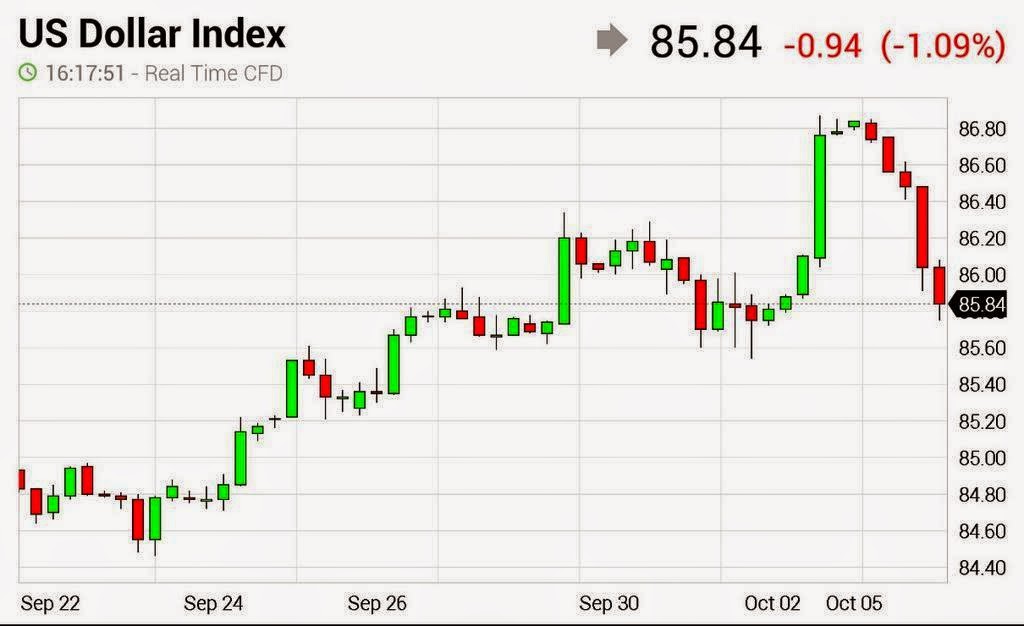 |
| Source: Investing.com |
On one hand we have a developing story in the Eurozone as a number of economists continue to believe that the ECB will have to undertake government bond purchases. The central bank will probably need to increase the Eurosystem balance sheet by at least €1 trillion in order to be credible. But it will be impossible to purchase enough ABS and covered bonds without drastically distorting the markets. These markets and the TLTRO program just aren't sufficiently large to achieve such balance sheet expansion without a more traditional QE program that involves purchases of government bonds.
However Mario Draghi dampened expectations for a full QE program at the last ECB press conference. The explanation seems to be that Germany continues to be heavily opposed to such efforts. In fact Jens Weidmann is even opposed to ABS purchases - particularly from periphery states such as Greece and Cyprus. And some senior politicians in Germany are saying that Draghi is turning the ECB into "junk bank". With such headwinds for the ECB, it is not at all clear if QE will even be possible in the nearterm. Questions about the ECB's programs' effectiveness have introduced increased uncertainty into the euro's trajectory, causing volatility to rise.
Similarly the uncertainty is increasing around the Fed's liftoff as well. Expectations of timing vary dramatically between as early as Q1 of next year and as late as a year from now. With rate uncertainty comes increased currency volatility.
The volatility is further helped by the fact that speculative accounts have jumped on the long-USD bandwagon (as can be seen from the CFTC commitments of traders futures data).
|
|
| Source: Timingcharts.com |
Now add to that sharp swings in emerging markets currencies of nations such as Brazil, Russia, South Africa and Turkey and we finally see volatility returning to FX markets.
![]()
To subscribe or visit go to: http://www.riskcenter.com
http://riskcenter.com/articles/story/view_story?story=99917133